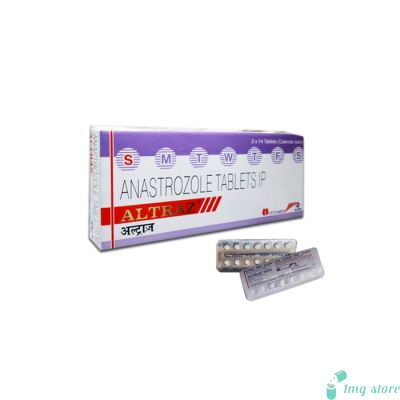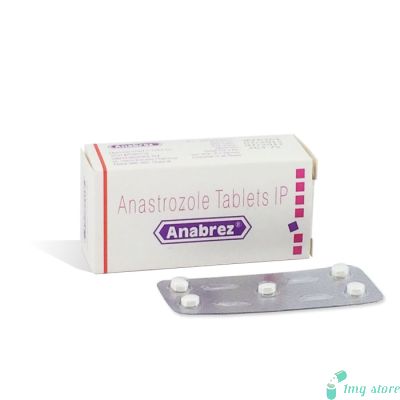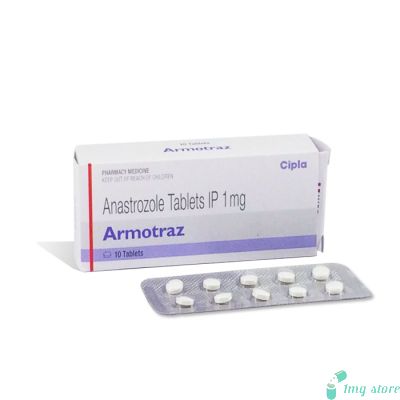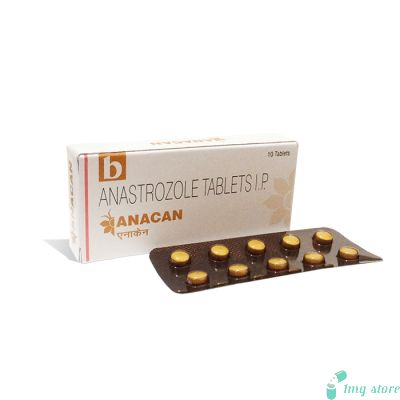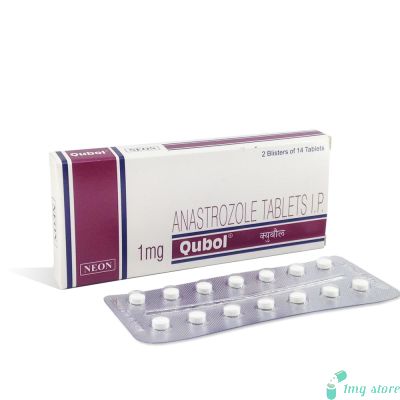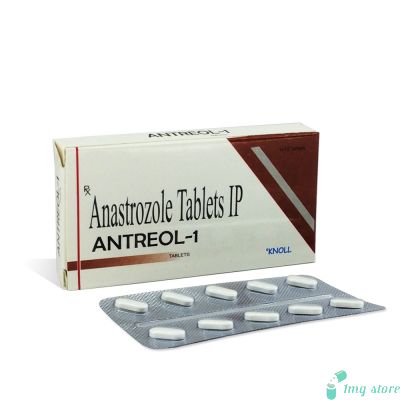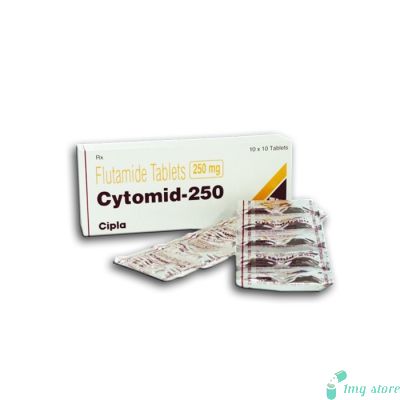Xovoltib Tablet (Afatinib dimaleate)
Afatinib dimaleate, marketed under the brand name Xovoltib, or Gilotrif, is a medication used for the treatment of certain types of cancer.
Afatinib dimaleate, marketed under the brand name Xovoltib, is a medication used for the treatment of certain types of cancer. It belongs to a class of drugs known as tyrosine kinase inhibitors (TKIs). Afatinib dimaleate works by blocking specific proteins that promote the growth and spread of cancer cells. It is primarily prescribed for patients with advanced non-small cell lung cancer (NSCLC) that has specific genetic mutations.
Dosage Information:
The dosage of Afatinib dimaleate (Xovoltib) may vary depending on the individual patient and their specific condition. It is crucial to follow the instructions provided by the healthcare professional or the prescribing doctor. Typically, Afatinib dimaleate is available in tablet form with various strengths, such as 20 mg, 30 mg, and 40 mg. The recommended starting dose for most patients is 40 mg taken orally once daily.
The tablets should be swallowed whole with a glass of water, preferably at the same time each day. It is important not to crush, chew, or break the tablets. If a dose is missed, it should be taken as soon as remembered, unless it is close to the time for the next scheduled dose. In such cases, the missed dose should be skipped. The patient should not take a double dose to compensate for the missed one.
The dosage may be adjusted by the healthcare provider based on the patient's response to treatment and any potential side effects experienced. It is crucial to discuss any concerns or questions regarding the dosage with the healthcare professional.
Afatinib dimaleate is marketed under the brand name Xovoltib. The brand name may vary depending on the country or region.
Regarding the price of Afatinib dimaleate, it is advisable to consult reputable pharmacies or authorized distributors for accurate and up-to-date pricing information. At 1mgstore.com, a reliable online pharmacy, you can find information about the price of Afatinib dimaleate. However, it is important to note that medication prices can vary over time due to factors such as availability, market conditions, and currency fluctuations.
Conclusion:
Afatinib dimaleate (Xovoltib) is an important medication used for the treatment of certain types of cancer, primarily advanced non-small cell lung cancer (NSCLC) with specific genetic mutations. It is a tyrosine kinase inhibitor that works by blocking certain proteins involved in cancer cell growth and proliferation.
The dosage of Afatinib dimaleate varies depending on the patient's condition and should be followed as prescribed by the healthcare professional. The medication is taken orally in tablet form, usually once daily.
Afatinib dimaleate has shown significant efficacy in treating NSCLC with specific genetic mutations, such as EGFR exon 19 deletions or exon 21 L858R substitution mutations. It may also hold potential for other cancer types, although further research is necessary.
For accurate pricing information, it is recommended to consult reputable pharmacies or authorized distributors, such as 1mgstore.com. They can provide the current price for Afatinib dimaleate and assist in procuring the medication. However, prices may vary over time and across different locations.
Anti-Cancer and Life-Saving Drug: Afatinib dimaleate (Xovoltib) is an anti-cancer medication classified as a life-saving drug. It is crucial to understand the importance of following precautions to ensure its optimal efficacy and minimize potential risks.
Medical History: Before starting treatment with Afatinib dimaleate, it is essential to inform your healthcare provider about your complete medical history, including any pre-existing conditions, allergies, or previous adverse reactions to medications. This information helps the healthcare professional assess the suitability and safety of Afatinib dimaleate for you.
Pregnancy and Breastfeeding: Afatinib dimaleate can cause harm to the developing fetus, and its use during pregnancy is generally not recommended. It is important to use effective contraception during treatment and for at least two weeks after the last dose. If you become pregnant while taking Afatinib dimaleate, inform your healthcare provider immediately. Similarly, it is advised to avoid breastfeeding while undergoing treatment with this medication.
Liver and Kidney Function: Afatinib dimaleate is primarily metabolized in the liver, and its elimination depends on kidney function. Patients with pre-existing liver or kidney disease may require dosage adjustments or close monitoring while taking this medication. Your healthcare provider will determine the appropriate dose based on your specific condition.
Respiratory Disorders: Afatinib dimaleate may cause or worsen pre-existing respiratory disorders, including interstitial lung disease or pneumonitis. Inform your healthcare provider if you have a history of such conditions, as close monitoring of respiratory function may be necessary during treatment.
Eye Disorders: Afatinib dimaleate can cause ocular toxicities, including keratitis and dry eyes. If you experience any eye-related symptoms, such as eye pain, redness, sensitivity to light, or blurred vision, seek immediate medical attention.
Afatinib dimaleate (Xovoltib) is primarily used for the treatment of advanced non-small cell lung cancer (NSCLC) with specific genetic mutations. It is particularly effective for patients whose cancer has certain mutations in the epidermal growth factor receptor (EGFR) gene. These mutations include exon 19 deletions or exon 21 L858R substitution mutations.
Afatinib dimaleate works by irreversibly inhibiting multiple receptors, including EGFR, HER2, and HER4. By blocking these receptors, the medication prevents the activation of signaling pathways that promote tumor growth. It helps in slowing down the progression of cancer, reducing tumor size, and improving overall survival rates.
In addition to NSCLC, Afatinib dimaleate has shown promising results in clinical trials for the treatment of other types of cancer, including breast cancer and head and neck squamous cell carcinoma. However, its use in these conditions is still under investigation, and further research is needed to establish its efficacy and safety.
Common Side Effects: Afatinib dimaleate can cause a range of common side effects, including diarrhea, rash, nail disorders (such as paronychia), dry skin, mouth sores, fatigue, decreased appetite, and weight loss. These side effects are usually manageable and tend to improve over time. Inform your healthcare provider if these side effects become severe or persistent.
Gastrointestinal Disorders: Diarrhea is a common side effect of Afatinib dimaleate. It is important to stay well-hydrated and notify your healthcare provider if you experience persistent or severe diarrhea. They may recommend anti-diarrheal medications or adjust the dose of Afatinib dimaleate.
Skin and Nail Disorders: Afatinib dimaleate can cause skin-related side effects, such as rash, dry skin, and nail disorders. It is advisable to avoid excessive sun exposure and use sunscreen with a high sun protection factor (SPF) while taking this medication. Additionally, moisturizers and emollients can help alleviate dry skin symptoms.
Pulmonary Toxicity: Rarely, Afatinib dimaleate may cause serious lung problems, including interstitial lung disease or pneumonitis. Seek immediate medical attention if you experience symptoms such as difficulty breathing, persistent cough, or fever.
Ocular Toxicities: Afatinib dimaleate can lead to ocular toxicities, including keratitis (inflammation of the cornea) and dry eyes. If you experience any eye-related symptoms, consult your healthcare provider promptly.
Cardiac Effects: Afatinib dimaleate may have cardiac side effects, including QT interval prolongation (an abnormal heart rhythm). Inform your healthcare provider if you have a history of cardiac conditions or if you experience symptoms such as palpitations or fainting.
Can I drink alcohol while taking Afatinib dimaleate?
It is generally recommended to avoid or limit alcohol consumption while taking Afatinib dimaleate. Alcohol may increase the risk of certain side effects, such as liver toxicity, and can potentially interfere with the effectiveness of the medication. It is best to consult your healthcare provider for specific guidance regarding alcohol consumption during treatment.
Can I take herbal supplements or alternative medicines alongside Afatinib dimaleate?
It is crucial to inform your healthcare provider about any herbal supplements or alternative medicines you are taking, as they may interact with Afatinib dimaleate. Some herbal supplements can interfere with the effectiveness of the medication or increase the risk of side effects. Your healthcare provider can provide guidance on whether it is safe to continue or adjust the use of such supplements during treatment.
How long will I need to take Afatinib dimaleate?
The duration of Afatinib dimaleate treatment varies depending on the individual and the specific condition being treated. In most cases, treatment with Afatinib dimaleate is long-term. Your healthcare provider will monitor your response to treatment and determine the appropriate duration based on the effectiveness and tolerability of the medication.
Are there any specific dietary restrictions I should follow while taking Afatinib dimaleate?
There are no specific dietary restrictions associated with Afatinib dimaleate. However, maintaining a healthy and balanced diet is important for overall well-being and to support your body during cancer treatment. It is advisable to consult a registered dietitian who can provide personalized dietary recommendations based on your specific needs.
Can Afatinib dimaleate interact with over-the-counter medications or supplements?
Afatinib dimaleate may interact with certain over-the-counter medications and supplements. It is essential to inform your healthcare provider about all the medications and supplements you are taking, including those purchased without a prescription. They can assess the potential interactions and provide guidance on the safe use of these medications and supplements alongside Afatinib dimaleate. It is advisable to seek professional advice before starting or stopping any over-the-counter medications or supplements during treatment.
Other Medications: Inform your healthcare provider about all the medications you are currently taking, including prescription drugs, over-the-counter medications, vitamins, and herbal supplements. Certain medications may interact with Afatinib dimaleate, potentially affecting its effectiveness or increasing the risk of side effects.
CYP3A4 Inhibitors/Inducers: Afatinib dimaleate is metabolized by the CYP3A4 enzyme in the liver. Co-administration of drugs that inhibit or induce CYP3A4 can alter the blood levels of Afatinib dimaleate. It is important to discuss with your healthcare provider if you are prescribed or planning to take any other medications, including antifungal agents, antibiotics, and anticonvulsants.
Gastric Acid-Reducing Agents: Medications that reduce gastric acid secretion, such as proton pump inhibitors (PPIs) or H2-receptor antagonists, can affect the absorption of Afatinib dimaleate. It is advisable to consult your healthcare provider regarding the timing and administration of these medications to avoid potential interactions.
| Manufacturer | : | Boehringer Ingelheim |
| Equivalent Brand | : | Gilotrif |
| Generic Search | : | Afatinib dimaleate |








